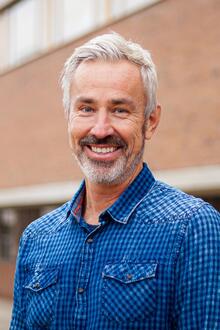
International students thrive after graduating Waterloo
New study tracks economic impact of University of Waterloo students over two decades and shows how Canada's International Student Strategy can boost national economic growth

New study tracks economic impact of University of Waterloo students over two decades and shows how Canada's International Student Strategy can boost national economic growth
By Media RelationsA new study by University of Waterloo researchers found that international students who study in Canada don’t see their skills underutilized once they join the Canadian labour market, a sign that signals the potential of the country’s International Student Strategy to help boost economic growth.
The study’s findings provide a clearer view of how successful international students are once they complete their studies across Canadian post-secondary schools, notably in technology- and engineering-focused programs where they enjoy an earnings advantage over their peers. As well, international students who study in those programs should be incentivized to live and work in Canada after graduation, the researchers said.
The study, authored by Waterloo researchers Joel Blit, Mikal Skuterud, and Ruiwen Zhang, examined a wide range of data sources for their study, including students’ grades, with immigration data from Immigration, Refugees, and Citizenship Canada (IRCC) and income tax returns from the Canada Revenue Agency.
In addition to debunking the skills underutilization thesis, the study found that international students who attend the University of Waterloo are more likely to stay in Canada and become permanent residents as well as earn more than their Canadian counterparts when compared to the national average.
Roughly 70 per cent of Waterloo’s international students wind up becoming permanent residents in Canada after they graduate, a rate that is double the national average, the study found.
 “What the results show in this paper is that there’s no evidence of skill underutilization,” said Skuterud, professor at the Department of Economics at the University of Waterloo. “International students and foreign-born students who already have permanent residency do incredibly well when they attend Waterloo.”
“What the results show in this paper is that there’s no evidence of skill underutilization,” said Skuterud, professor at the Department of Economics at the University of Waterloo. “International students and foreign-born students who already have permanent residency do incredibly well when they attend Waterloo.”
Once they graduate, the earnings of Waterloo’s international students exceed not only Canadian-born graduates of the University of Waterloo but also Canadian-born university graduates nationally. More specifically, Waterloo’s international students who graduated between 2017 to 2019 earn as much as 37 per cent more a year after they graduate than their Canadian-born counterparts.
That earnings advantage has increased in those years as the returns to degrees in technology and engineering, where foreign students are concentrated, the study’s authors wrote in their report.
Based on these findings, the researchers advise Canadian policymakers to revise decade-old Canada’s International Education Strategy to fine-tune admittance requirements which have previously accentuated issues across the country’s labour and housing markets.
One recommendation suggests that the IRCC should provide a transparent pathway for international students who seek economic-class immigration to Canada by selecting candidates with the highest expected future Canadian earnings.
“The success of the CRS in predicting immigrants’ future Canadian earnings can be enhanced significantly by adding applicants’ fields of study, school identities, and post-graduation Canadian earnings to the set of criteria used,” the researchers write.
Another recommendation the researchers make is to influence the choices on where the world’s best and brightest students choose to study and settle after they graduate, including targeted tuition subsidies to attract foreign students in technology- and engineering-focused programs, and income tax subsidies to incentivize graduates to work in Canada after graduation.

Read more
Researchers awarded funding to investigate ecology, climate change, repatriation, health and well-being through cultural and historical lens

Read more
New Canada Research Chairs will tackle future-focused problems from social robots and intergroup attitudes to geochemistry and nanoscale devices

Read more
Meet five exceptional Waterloo graduate students crossing the convocation stage as Class of 2025 valedictorians
The University of Waterloo acknowledges that much of our work takes place on the traditional territory of the Neutral, Anishinaabeg, and Haudenosaunee peoples. Our main campus is situated on the Haldimand Tract, the land granted to the Six Nations that includes six miles on each side of the Grand River. Our active work toward reconciliation takes place across our campuses through research, learning, teaching, and community building, and is co-ordinated within the Office of Indigenous Relations.